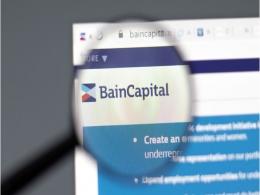 Funds raised in India through share sales reached the most in a decade this year thanks to booming stock markets, but the rush to raise capital while investor sentiment remained bullish pushed dealmakers’ fee ratio to multi-year lows.
Funds raised in India through share sales reached the most in a decade this year thanks to booming stock markets, but the rush to raise capital while investor sentiment remained bullish pushed dealmakers’ fee ratio to multi-year lows.
India’s main stock indexes surged almost 30 percent in 2017 as investors bet on economic reform and corporate earnings recovery. That spurred almost $30 billion worth of share sales including a record $11.5 billion in initial public offerings (IPO).
But for banks which arrange the sales, fees earned as a percentage of funds raised hit the lowest in four years, Thomson Reuters data showed. That made arranging work in Asia’s third-largest economy the worst paid out of 11 Asian markets.
To be sure, the structure of Indian deal-making means fees are often comparatively small. But this year was particularly low because a high proportion of deals involved state-run firms which typically pay paltry fees.
Competition was also higher with dealmakers such as IDFC Bank Ltd and IIFL Holdings Ltd gaining market share, while entrants such as China’s Haitong Securities Co Ltd made headway, industry participants said.
“In a buoyant market there is no cause for anxiety for issuers, so low fees are no surprise. In a weak market, issuers may be willing to pay higher fees but the number of issues are fewer,” said Prithvi Haldea, chairman of data provider Prime Database.
“That said, India has been a low-paying market for years and that’s unlikely to change anytime soon,” he said.
Unattractive
Bankers are optimistic about 2018’s deal pipeline which they expect to include IPOs, real estate investment trusts and state-backed share sales. But some fear a continued market boom will keep fees low.
Fees this year averaged 0.8 percent of deal proceeds, from 1.3 percent last year, Thomson Reuters data showed. The average was 2 percent in Hong Kong, 2.6 percent in Shanghai and Shenzhen and 2.8 percent in Tokyo. New York averaged 3.2 percent.
“While fees in India (usually) are attractive in the Indian context, they are not probably as attractive in an Asian or a global context,” said V. Jayasankar, head of equity capital markets (ECM) at Kotak Mahindra Bank Ltd’s investment banking arm, which Thomson Reuters data showed arranged the most deals this year by total value.
Kotak and four other banks split a 0.1 percent fee for arranging the $1.7 billion IPO of state-run General Insurance Corp of India, the year’s biggest IPO.
Six banks arranging a $2.3 billion follow-on share offering by State Bank of India - 2017’s largest ECM deal - received a token fee of 1 rupee ($0.016), according to bankers. It is not uncommon for dealmakers to agree to such terms for the opportunity to take part in blockbuster deals.
Underwriting
The low fees can be partially attributed to the structure of deal-making in India where, unlike elsewhere, banks do not risk underwriting share sales.
“We don’t see a material change in the fees paid, and we are at least five to 10 years away from an underwriting fee model,” said Jibi Jacob, head of ECM at Edelweiss Financial Services Ltd, 2017’s sixth-ranked IPO arranger in India this year, Thomson Reuters data showed.
An increasing number of banks involved in each deal also means fees are being split between more dealmakers, said the ECM head at a multinational bank, who was not authorised to publicly comment on fees and so declined to be identified.
There is also a “new cycle of people willing to go down the fee curve,” the banker said.
Understaffed
Looking at 2018, bankers including Citigroup Inc’s India ECM head Arvind Vashistha said they expected average IPO sizes to be larger, with fundraising picking up in sectors such as infrastructure, real estate, metals and mining.
“The big risk continues to be that of the global geopolitical environment and of valuations which in some cases have run up significantly. But the fundamental appetite for India paper in 2018 should continue to be very robust,” said Vashistha at Citi, ranked second among share sale arrangers.
But low fees mean regardless of higher deal volumes, many banks - especially foreign banks with high cost structures - are not aggressively expanding ECM teams, bankers said.
“When you have limited resources and deal volumes pick up, I think the only thing we can do is be disciplined about which clients, what transactions, rather than trying to do everything,” said a senior banker at a foreign bank’s India arm.







